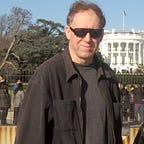Why learning the truth about 1960s political assassinations matter
New government documents lend more details about who was trying to kill JFK, MLK, RFK, and others in the 1960s. This is about more than just setting the historical record straight. It’s about preventing further political violence.
When you think of the 1960s, many people reflect on aspects such as the free love movement and rock ‘n roll music. But beyond those cultural changes were political changes that involved intensive violence. The assassination of President John F. Kennedy in 1963 was just the start.
Two years later, former Nation of Islam spokesman Malcolm X was gunned down as he spoke in New York City. In 1968, civil rights leader Martin Luther King Jr. and presidential candidate Robert Kennedy were killed. Then in the decade’s final month, Black Panther Party leader Fred Hampton Sr. was assassinated by Chicago police as he slept in his apartment.
Underneath the political assassinations were waves of repression. In 1968, President Lyndon Johnson sent militarized police into low-income, mostly minority neighborhoods under guise of a “War on Crime.” Police tactics against lower-income Americans, minorities, and anti-Vietnam War protesters intensified. Many noted how that war pretty much left white-collar, financial, and high political office crime alone. Richard Nixon escalated the war on crime, increasing penalties for marijuana possession that resulted in a huge rise in prisoners. At the same time, he authorized the IRS and Justice Department to pursue political opponents and his White House approved an assassination plot against journalist Jack Anderson. Nixon’s Watergate crimes involved more than a petty burglary of Democratic National Committee headquarters.
In recent times, government documents have lent more clues into what was behind the 1960s political violence. In the cases of JFK, MLK, and RFK, many historians blame lone patsies, despite a wealth of evidence of other involvement, including local police and federal agencies. The family of King even pursued a lawsuit in which a jury agreed in 1999 that retired Memphis cafe owner Loyd Jowers was involved in the April 4, 1968, murder, along with federal, state, and local government agencies that included the FBI and Memphis police. The jury awarded the King family damages of $100, a low amount they sought to show they pursued the case for justice and truth, not money.
